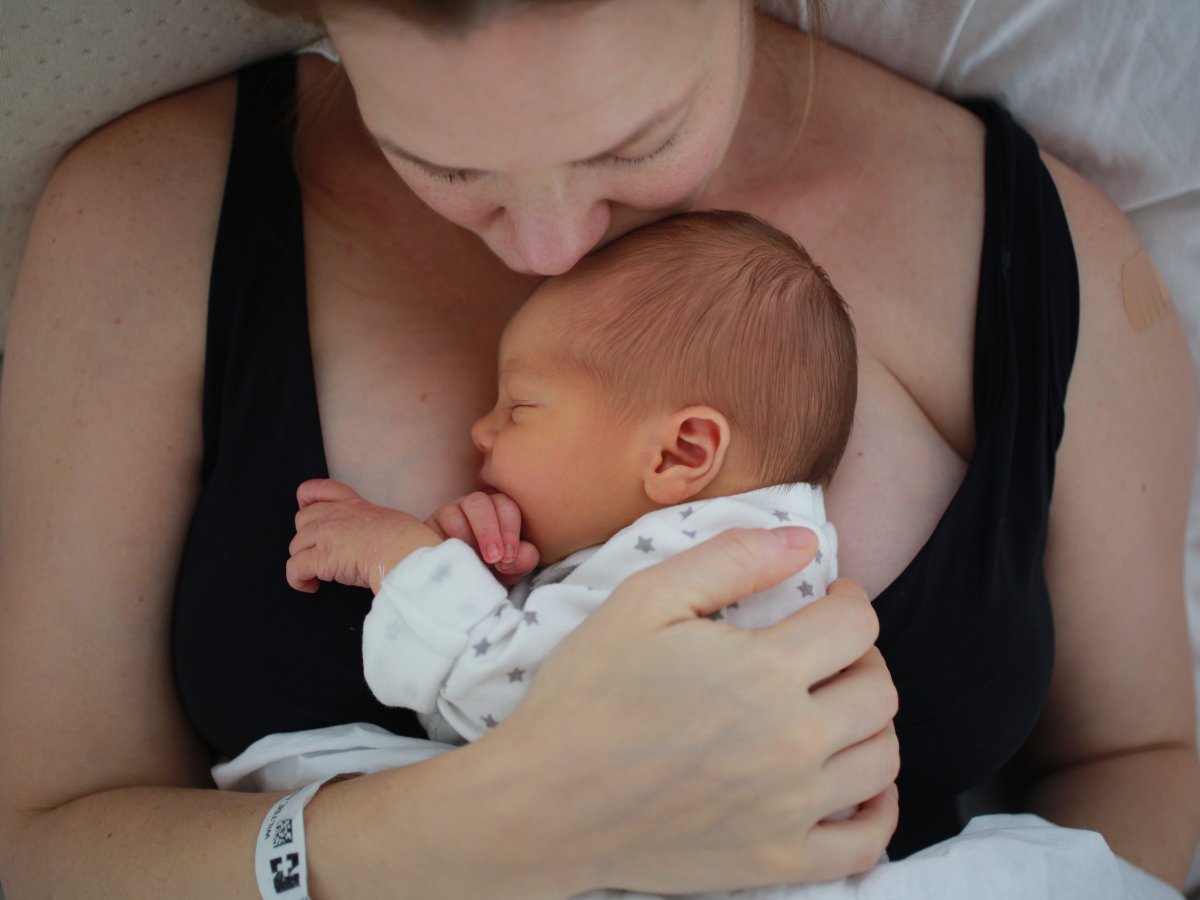The federal government is making some key changes next month to the rules governing parental and maternity leave in Canada.

Minister of Families, Children and Social Development Jean-Yves Duclos made the announcement on Thursday in Ottawa, confirming that the updated rules will come into force just over three weeks from today.
Here’s what you need to know:
What’s changing?
Simply put, starting on Dec. 3, new parents will be able to opt for either 12 months or 18 months of combined maternity and parental leave.
WATCH: Government announces new parental leave benefits

If they choose to stick with 12 months, the system will mostly remain the same. New birth moms and surrogates will still be eligible for 15 weeks of maternity benefits, with federal employment insurance (EI) providing them with 55 per cent of their average weekly salary (up to a maximum $543 a week).
There is one key change to note here, however. Starting Dec. 3, pregnant women can start claiming the maternity benefit 12 weeks prior to their due date, up from the current eight weeks.
READ MORE: Work or stay home with the kids? Financial coach says consider big picture
After those 15 weeks of maternity leave, any parent or caregiver (adoptive or birth) opting for the old 12-month system can take 35 additional weeks of parental leave.
Again, the government will provide 55 per cent of their average weekly earnings during that time, up to $543 a week.
The big change comes with the new option to take 18 months. The maternity benefits and the rules surrounding them will stay the same: 15 weeks at 55 per cent, and the benefits can start as early as 12 weeks before baby arrives.
But once those 15 weeks are up and you switch over to parental benefits, the government will pay out just 33 per cent of weekly salary (to a maximum of $326 per week) over the longer time span of 61 weeks.
I thought the government announced this last spring?
It did, but the announcement in last spring’s federal budget only confirmed that Ottawa was planning to make these changes, not when they would happen.
It was widely expected that the new system would not be implemented until early 2018. Instead, it’s coming before the end of this year.
WATCH: Could you afford to take the new 18-month parental leave?

Who qualifies?
Any expectant Canadian parent outside of Quebec (which has its own parental and maternity benefits system) could theoretically qualify.
If, however, you’ve already started receiving parental or maternity benefits and want to switch to the 18-month system after Dec. 3, you’re out of luck. The government won’t offer this option.
READ MORE: Daycares aren’t always serving the nutritious food they promise, Canadian study finds
To be eligible for maternity and/or parental benefits, you must have worked 600 insurable hours in the 52 weeks leading up to your claim.
Canadians who are self-employed can opt into the federal EI program, but in order to receive maternity or parental benefits, they need to have opted in at least one full year prior to their claim, and need to have earned a minimum of $6,888 in 2016.
Will my job be safe?
Workers in federally regulated workplaces like banks, transport companies, the public service and telecoms can choose the 18-month option as soon as the clock strikes midnight on Dec. 3 without fear that their job won’t be there when they get back (at least for reasons directly related to their leave).
The government says that the Canada Labour Code has already been amended to offer this important protection.
Everyone else may need to wait a bit for the same level of peace of mind, depending on where they live.
While provincially regulated workers — representing the majority of Canadians — can certainly opt for 18 months as of Dec. 3, some provinces and territories will need to amend their individual labour codes so that job protection is extended to reflect the new 18-month option. Ontario has already made it clear it will make the changes.
(It’s important to note that these laws and restrictions protect Canadian workers from being terminated for reasons directly related to their parental leave, but not necessarily from being laid off due to company restructuring or downsizing.)
Individual companies will also need to adapt, amending existing leave policies and collective agreements that spell out issues like salary top-ups over a longer period of time.




Comments